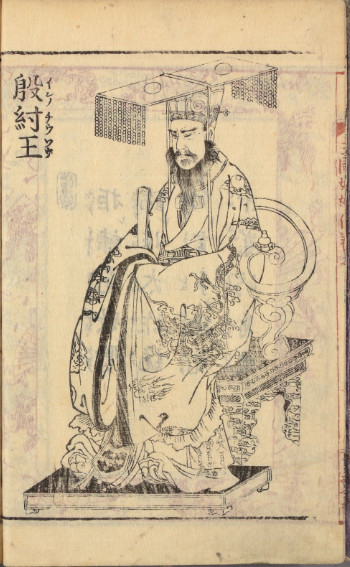We should learn from the mistakes of other(殷鑑不遠)
(The Book of Songs) is the earliest poetry
collection in China.
There are 305 poems in this book.
The poems were written over a period of 500
years, from the 11th century BC to the 6th century BC.
The content of these poems is mainly
divided into three categories.
The first category is the folk poetry from
all over China at that time
The second category is the poetry of the
Zhou Dynasty that ruled China at that time.
The third category is the poetry of the
royal family and nobles in the Zhou Dynasty.
There is a poem in it, in which a faithful
minister gives his advice to the king.
The gist of this poem is as follows.
The father of the founding king of the Zhou
Dynasty sighed sadly, why did he sigh, it turned out that he thought of the
last king of the Shang Dynasty.
This king is close to the wicked.
This king is far from the good guys.
This king is arrogant and arrogant.
This king has no discerning eye.
This king drank heavily every day.
This king indulges in lust.
This king cannot hear the lament of the
people
This king could not see the anger of the
people.
This king did not obey the laws of the
country.
This king does not listen to the advice of
others.
The Shang Dynasty under this king was like
a tree that had been uprooted and its roots had left the land.
Although the leaves on this tree are still
green for the time being, we can already predict that the tree is about to dry
up.
I remind you to remember this history.
Why did the Shang Dynasty and the Xia
Dynasty perish? We should learn from the mistakes of others.
This idiom means that we should learn from
the mistakes of others.
Dear friends, what inspiration or thoughts
do you have after listening to this story?
When you see others make mistakes, do you
reflect on whether you have made the same mistake? When you hear other people's
advice, do you correct your own behavior?
I hope this story will give you something
new to gain.
殷鑑不遠(We should learn from the mistakes of
other)
(詩經)是中國最早的詩歌合輯。
這本書中有305首詩。
這些詩寫的時間橫跨500年,從西元前11世紀到西元前6世紀。
這些詩的內容主要分為三類。
第一類是當時中國各地的民間詩歌
第二類是當時統治中國的周王朝的詩歌。
第三類是周王朝中的王室與貴族祭祀用的詩歌。
其中有一首詩,是一個忠心的大臣提出他對國王的忠告。
這首詩的大意如下。
周王朝的開國國王的父親悲哀的嘆氣,他為何嘆氣呢,原來是他想到商朝的最後一位國王。
這一位國王親近那些惡人。
這一位國王遠離那些好人。
這一位國王自大又狂妄。
這一位國王沒有識人的眼光。
這一位國王每天酗酒。
這一位國王放縱情慾。
這一個國王聽不見百姓的悲嘆
這一個國王看不見百姓的怒氣。
這一位國王不遵守國家的律法。
這一位國王不聽別人的勸告。
商王朝在這一位國王的領導下就像是一株被拔除,樹根已經離開土地的樹木。
這棵樹上的葉子雖然暫時還是翠綠,但我們已經可以預見這株樹木即將變得乾枯。
我提醒你要記得這段歷史。
商王朝與夏王朝為何滅亡呢?我們我們應該從別人的錯誤中學到教訓。
這句成語的意思是我們應該從別人的錯誤中學到教訓。
親愛的朋友,你聽完這個故事有怎樣的啟發或有怎樣的想法呢。
你看見別人犯錯、你會反省自己是否犯了一樣的錯嗎?你聽到別人的勸告,你會改正自已的行為嗎?
我期待這故事能讓你產生一些新的收穫。
出處為詩經-大雅-盪
https://baike.baidu.hk/item/%E5%A4%A7%E9%9B%85%C2%B7%E8%95%A9/2003378
